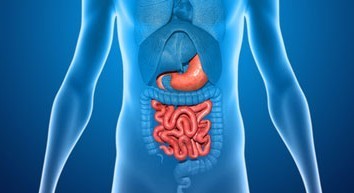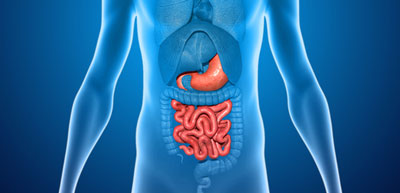Phase II data for Celgene’s investigational Oral GED-0301 for patients with active Crohn’s Disease published
Posted: 19 March 2015 |
Celgene Corporation announce results from a phase II trial of GED-0301 on patients with active Crohn’s Disease have been published…


Celgene Corporation have announced that results from a double-blind, placebo-controlled, multicenter phase II trial of three doses of GED-0301 (mongersen) in patients with active Crohn’s disease have been published in the March 19 issue of The New England Journal of Medicine.


“This orally administered therapy is designed to act locally with its novel mechanism of action. The results from the phase II trial suggest that GED-0301 should be studied further in phase III trials for Crohn’s disease.”
“GED-0301 offers a unique approach to treating Crohn’s, using antisense technology to target a key intracellular signaling protein thought to be involved in intestinal inflammation and the pathogenesis of the disease,” said Professor Giovanni Monteleone, University of Rome Tor Vergata. “This orally administered therapy is designed to act locally with its novel mechanism of action. The results from the phase II trial suggest that GED-0301 should be studied further in phase III trials for Crohn’s disease.”
This phase II trial enrolled 166 adult patients with moderate-to-severe Crohn’s disease, defined as Crohn’s Disease Activity Index (CDAI) ranging from 220 to 400 at least one week prior to enrollment, with documented inflammatory lesions in the terminal ileum and/or right colon.
65 percent of patients treated with GED-0301 160 mg once daily for two weeks achieved clinical remission at both day 15 and day 28, versus 10 percent of patients on placebo
The newly published findings from this phase II study showed that a significantly greater proportion of patients with active Crohn’s disease achieved the primary endpoint of clinical remission at both day 15 and day 28 with once daily GED-0301 40 mg (55 percent) or 160 mg (65 percent) than with GED-0301 10 mg (12 percent) or placebo (10 percent; P<0.001). Additionally, 67 (6/9 patients) percent of patients reached glucocorticoid-free remission at day 84 with 160 mg GED-0301 once daily, versus 11 (1/9 patients) percent with placebo (P=0.04).
For patients treated with GED-0301 160 mg once daily, 67 percent, 72 percent and 67 percent were in clinical remission (had a CDAI score less than 150) on day 15, day 28 and day 84, respectively, compared with 21 percent, 14 percent and 21 percent on placebo (P<0.0001 vs. placebo, for each time point). Similar results were seen in the GED-0301 40 mg once daily group (58 percent, 70 percent and 63 percent, respectively). For patients treated with GED-0301 10 mg once daily, clinical remission was achieved by 15 percent, 29 percent and 29 percent on day 15, day 28 and day 84, respectively (P=n.s. vs. placebo).
On day 28, 37 percent, 58 percent and 72 percent of patients treated with once daily GED-0301 10 mg, 40 mg or 160 mg once daily, respectively, achieved a clinical response (a 100-point reduction in CDAI score; a secondary endpoint), compared with 17 percent with placebo (P=0.04, P<0.001 and P<0.001, respectively).
The rates of patients with at least one adverse event (AE) in the GED-0301 groups were 49 percent, 62 percent and 49 percent for 10 mg, 40 mg and 160 mg once daily, respectively, compared with 67 percent for the placebo group. The most commonly reported AEs in the GED-0301 treatment groups were abdominal pain (10-12 percent), Crohn’s disease worsening (10-15 percent), urinary tract infection (5-15 percent) and C-reactive protein increase (5-9 percent). The rates of serious adverse events in the GED-0301 dose groups were 7 percent, 2 percent and 2 percent for 10 mg, 40 mg and 160 mg once daily, respectively, compared with 2 percent for the placebo group.
“A significant number of Crohn’s disease patients don’t reach remission with current therapies and are looking for additional options,” said Scott Smith, President of Celgene Inflammation and Immunology. “GED-0301 offers a completely different mechanism of action that has the potential to transform the Crohn’s treatment landscape. We are encouraged by the phase II data and are committed to bringing innovative medicine to patients with Crohn’s disease, starting with advancing the phase III trial for GED-0301.”
For more information about Celgene Corporation, please visit www.celgene.com.




